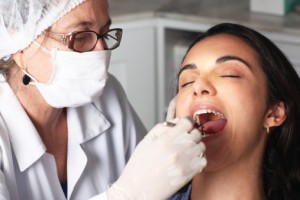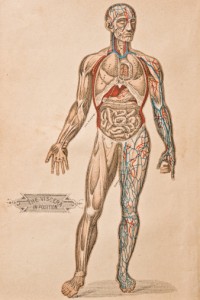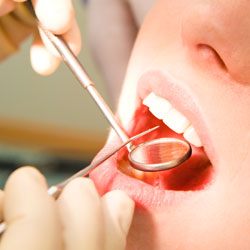 Ever heard the phrase, “you’ve gotta be cruel to be kind?” It has never been truer than when referring to gum disease treatments. Periodontal disease affects as much as 80% of US adults, but the way dental practitioners handle periodontal treatments may be part of the problem. Patients avoid periodontal treatment due to lack of treatment urgency, not fully understanding necessary treatments, and money. Many dentists hesitate to fully explain and recommend periodontal therapy because they fear patients will simply cancel appointments due to the added cost. Instead, dentists tend to try the “nice” approach – recommending periodontal appointments every three months but billing them as regular dental cleanings during six month checkups. However, by changing the focus of periodontal disease treatment to communicating clearly, emphasizing assessment and prevention, and working with patients to maximize insurance benefits, dentists can better equip patients to receive the dental care they need.
Ever heard the phrase, “you’ve gotta be cruel to be kind?” It has never been truer than when referring to gum disease treatments. Periodontal disease affects as much as 80% of US adults, but the way dental practitioners handle periodontal treatments may be part of the problem. Patients avoid periodontal treatment due to lack of treatment urgency, not fully understanding necessary treatments, and money. Many dentists hesitate to fully explain and recommend periodontal therapy because they fear patients will simply cancel appointments due to the added cost. Instead, dentists tend to try the “nice” approach – recommending periodontal appointments every three months but billing them as regular dental cleanings during six month checkups. However, by changing the focus of periodontal disease treatment to communicating clearly, emphasizing assessment and prevention, and working with patients to maximize insurance benefits, dentists can better equip patients to receive the dental care they need.
Continue reading Do Nice Dentists Finish Last? – Do Dentists Have to be Cruel to be Kind?
Tag: Preventive Dentistry
Eat for Your Best Oral Health
 Did you know that the month of March is National Nutrition Month as designated by The Academy of Nutrition and Dietetics? Everyone knows that diet and nutrition are critical to general health. The fact of the matter is, however, your oral health is equally dependent on and affected by nutrition. Of course there are foods to limit for the sake of your oral health, like those that are loaded with sugar or highly acidic. But there are also foods, specifically certain fruits and vegetables, which are good for your teeth and gums. And with National Nutrition Month upon us, this seems like the time to offer worthwhile tips for your oral health.
Did you know that the month of March is National Nutrition Month as designated by The Academy of Nutrition and Dietetics? Everyone knows that diet and nutrition are critical to general health. The fact of the matter is, however, your oral health is equally dependent on and affected by nutrition. Of course there are foods to limit for the sake of your oral health, like those that are loaded with sugar or highly acidic. But there are also foods, specifically certain fruits and vegetables, which are good for your teeth and gums. And with National Nutrition Month upon us, this seems like the time to offer worthwhile tips for your oral health.
Citrus Fruits
Citrus fruits, such as oranges, pineapples and tomatoes, are chock full of vitamin C, which is critical for the health of your gums. Without enough vitamin C, gums might become unhealthy and even bleed, an early sign of gum disease. Eventually, unhealthy gums may lead to tooth loss, so be sure to include lots of fresh citrus fruits for healthy gums and stable teeth.
Fiber Rich Fruits
When you chew fruits that are high in fiber, salivation increases to help wash away food debris and bacteria that can be harmful to teeth and gums. Some of these fresh fruits are apples, oranges, pears, and watermelons. This increase in saliva reduces the acid level in your mouth and helps avert dry mouth, which makes teeth more vulnerable to decay. In addition, as you chew fiber-rich fruits, you’re also massaging your gums.
Hard Vegetables Build Strong Teeth
Eating hard and fibrous vegetables, such as carrots and celery, provide your body with a good source of beta carotene. Your body needs beta carotene to make vitamin A, which is a nutrient that is vital to building strong teeth. These and other hard vegetables also massage your gums as you chew. And the water content in these vegetables cleans your teeth and gums.
Onions
Onions are great for your oral health, because they contain antibacterial sulfur compounds. These antibacterial compounds help kill the bacteria that can lead to tooth decay and gum disease. And, of course, they are strongest when eaten fresh and uncooked, so be sure to brush your teeth or rinse with a refreshing mouthwash after boosting your oral health with onions!
So, here’s to your health… your oral health!
Understanding Bruxism & TMJ Disorder: Find Relief from Nighttime Teeth Grinding
 Do you often awaken in the morning to find that your jaw is sore or that your neck and shoulders feel tense? Perhaps you suffer from frequent headaches that tend to begin in the area surrounding your temples. These symptoms are common in individuals with nighttime teeth grinding and daily jaw clenching, or bruxism and temporomandibular joint disorder (TMD). Fortunately, treatment for these orofacial issues is typically non-invasive, affordable, and easily accessible at your dentist’s office.
Do you often awaken in the morning to find that your jaw is sore or that your neck and shoulders feel tense? Perhaps you suffer from frequent headaches that tend to begin in the area surrounding your temples. These symptoms are common in individuals with nighttime teeth grinding and daily jaw clenching, or bruxism and temporomandibular joint disorder (TMD). Fortunately, treatment for these orofacial issues is typically non-invasive, affordable, and easily accessible at your dentist’s office.
What Causes Jaw Clenching and Teeth Grinding?
There are a variety of reasons that people with TMD and bruxism engage in the unconscious behavior of teeth grinding and clenching. Malocclusion, or an improper bite, is a major factor, as is daily stress. While you are sleeping, you are not able to stop the overworked muscles in the jaw and face from overtaking themselves further, leading to numerous symptoms that can affect you all day.
For many, the primary complaint related to TMJ disorder is headache pain that interferes with daily functioning. The delicate joints that connect your lower jaw to your cranium can become irritated and inflamed, causing nerve pain that can even spread to your upper back. This can lead to posture problems that further exacerbate the issue. In cases of teeth grinding, the patient is typically unaware that their jaws are placing inordinate amounts of pressure on their teeth all night. Bruxism can cause tooth fractures and enamel erosion, both of which can prove to be serious problems if not treated in a timely manner.
Bruxism & TMJ Treatment
In the majority of cases, a nighttime mouthguard is used to prevent damage to the teeth caused by clenching and grinding. This custom oral appliance fits comfortably in your mouth as you sleep, helping position the jaws properly so that the muscles aren’t unnecessarily strained. Patients who have been clenching their jaws for years are surprised to find that they experience relief from their discomfort in as few as one or two nights with their new appliance.
If you believe that you or someone in your family is suffering with the ill effects of TMJ disorder or bruxism, ask your dentist about a custom oral appliance. Relief could be a phone call away!
Pediatric Dental Care 101: Teach Your Children to Love Their Teeth!
 Teeth need love too! Especially your child’s teeth. The healthy development and maintenance of your child’s first teeth are vitally important to their future health and well being. Primary teeth help children learn to speak clearly and chew naturally. Primary teeth also forge the path that adult teeth follow when they’re ready to erupt. Healthy dental care foundations laid early in life will lead your child to positive dental outcomes in the future. You should choose a family or pediatric dentistry with a friendly environment that focuses on your child’s growth, development, and oral health education. Prevention, in the form of regular dental checkups, will help you take charge of and protect your child’s dental health.
Teeth need love too! Especially your child’s teeth. The healthy development and maintenance of your child’s first teeth are vitally important to their future health and well being. Primary teeth help children learn to speak clearly and chew naturally. Primary teeth also forge the path that adult teeth follow when they’re ready to erupt. Healthy dental care foundations laid early in life will lead your child to positive dental outcomes in the future. You should choose a family or pediatric dentistry with a friendly environment that focuses on your child’s growth, development, and oral health education. Prevention, in the form of regular dental checkups, will help you take charge of and protect your child’s dental health.
When Should Your Child Start Seeing a Pediatric Dentist?
Children should start having comprehensive dental exams twice a year, beginning around their first birthday. Their very first visit will establish a positive outlook towards dental care and dental practitioners.
Does your child have a fear of the dentist?
To help a fearful child visit the dentist, talk with them about the visit. Discuss the positive aspects of good dental care, and remind them that going to the dentist is a privilege for big boys and girls. Try not to use words such as fear, needle, pull, drill, or pain. There are many online resources to help you find dental language that is pleasant and non-frightening to children. Try to reassure your child that dentists and dental office helpers will always be gentle and friendly.
Choose Pediatric Dental Care for a Lifetime of Healthy Smiles
Remember, regular pediatric dental visits give children a solid foundation for a healthy life, through adolescence and adulthood. You should look for an experienced and gentle pediatric dental practice in your area. Pediatric dentists have at least two extra years of specialty training following dental school to treat the special dental needs of children. Pediatric dentists can be the primary or specialty dental care providers for infants, children, and teens. Show your love this season, and make a dental checkup appointment for your child with a qualified pediatric dentist today.
The Oral-Systemic Connection
 We live in an era of health consciousness, and that’s a good thing. Many people try to exercise and eat right. But being healthy is not simply a matter of what you put in your mouth, it’s also dependent on how you take care of your mouth. More and more evidence shows that there is a direct link between oral health and overall health.
We live in an era of health consciousness, and that’s a good thing. Many people try to exercise and eat right. But being healthy is not simply a matter of what you put in your mouth, it’s also dependent on how you take care of your mouth. More and more evidence shows that there is a direct link between oral health and overall health.
The oral-systemic connection characterizes the link between diseases and conditions in the mouth and health problems throughout the body. For example, periodontal or gum disease—called gingivitis in its early stages and periodontitis later—is caused by bacteria that can have access to the bloodstream when gum tissue bleeds, a common symptom of gum disease. Thus, preventing or treating gum disease and other oral infections early can be critical to avoiding secondary health concerns. So, those bi-annual dental checkups are more than just a matter of clean teeth. They can mean the difference between life and death.
Medical Conditions that Start in the Mouth
While research continues, the following is a partial list of medical conditions and diseases that have already been found to have a connection to oral health:
- Heart disease
- Stroke
- Osteoporosis
- Diabetes
- Some forms of cancer
- Some autoimmune disorders
- Low birth weight in newborns
Furthermore, the importance of maintaining oral health in order to have a proper diet and nutrition cannot be understated. People who have missing teeth are often unable to eat raw fruits and vegetables and other healthy foods that require chewing. Therefore, they choose softer foods that tend to be higher in saturated fats and sugar, both of which can have detrimental effects on the body when over consumed.
The Oral-Systemic Connection and You
What can you do to keep your oral-systemic connection healthy? First of all, brush your teeth and floss twice each day. Be sure to floss well below the gum line where bacteria hide. Secondly, see your dentist at least twice each year for a checkup. With regular visits, you and your dentist will better be able to recognize changes in your oral health and fend off any conditions that could compromise your general health.
Make Your New Year’s Resolution Count with Biannual Dental Checkups
 2014 is rapidly coming to a close, and New Year’s Day is just around the corner. People from all around the world are coming up with ideas for their New Year’s resolutions, hoping to make this the year they make great strides toward self-improvement and better health. As we all prepare to welcome 2015 in style, we’d like to take a few moments to suggest one resolution that is not only easy to keep but incredibly rewarding as well.
2014 is rapidly coming to a close, and New Year’s Day is just around the corner. People from all around the world are coming up with ideas for their New Year’s resolutions, hoping to make this the year they make great strides toward self-improvement and better health. As we all prepare to welcome 2015 in style, we’d like to take a few moments to suggest one resolution that is not only easy to keep but incredibly rewarding as well.
Dental Checkups for the Whole Family
Biannual checkups and cleanings are critical components of any oral hygiene regimen. They present you with the perfect opportunity to ask your dentist any questions you may have about your teeth and gums, as well as any other concerns you may have at the time. These simple visits also include a thorough exam and cleaning, two things your teeth desperately need to stay healthy for life.
Unfortunately, many people still believe that it’s fine to skip out on their routine checkups because they haven’t noticed any problems that warrant a dental visit. The problem with that line of thinking is that not every oral health concern presents with noticeable symptoms. The early stages of gum disease, for example, may be virtually undetectable. Small cavities – particularly those that form between the teeth – may be difficult to see or feel until they have progressed to a more advanced stage of decay. Even a root canal infection may slip under your radar without the practiced eyes of a dentist to spot the signs with a detailed x-ray.
The great news about dental checkups is that they are covered by most dental insurance plans; you may not have to pay a single penny to get your teeth cleaned by a dedicated professional!
Make the Smart Resolution Today!
While vowing to eat healthily, save money, and get in shape are all viable and popular resolutions, we suggest placing more emphasis on your oral health this year as well. Your mouth serves as a portal to the rest of your body, and the status of your teeth and gums can potentially affect your overall health. This New Year’s Eve, make the decision to treat your smile well with routine preventive visits at your local dental office. You’ll be glad you did.
Prepare Little Smiles for Trick-or-Treating with Preventive Dentistry
 Halloween is undeniably a favorite holiday for millions of children from across America, offering the perfect opportunity to dress up in creative costumes and bring home tons of sweet treats. While we’d never discourage any of the festivities and fun of trick-or-treating, we do want to emphasize the importance of keeping those precious pearly whites healthy this holiday season. With preventive dentistry solutions like dental sealants and fluoride supplements, we can help ensure your child’s continued oral health all year round.
Halloween is undeniably a favorite holiday for millions of children from across America, offering the perfect opportunity to dress up in creative costumes and bring home tons of sweet treats. While we’d never discourage any of the festivities and fun of trick-or-treating, we do want to emphasize the importance of keeping those precious pearly whites healthy this holiday season. With preventive dentistry solutions like dental sealants and fluoride supplements, we can help ensure your child’s continued oral health all year round.
Preventing Cavities this Holiday Season
The two most common childhood dental concerns are tooth decay and periodontal disease. Because prevention is always the best medicine when it comes to your child’s oral health, routine dental exams and cleanings are integral to a future of healthy smiles. Particularly around the holidays, it is important to consider the effects of sugary treats – including Halloween candies like lollipops, chocolate, and candy corn – on a child’s vulnerable teeth. Your child’s tooth enamel isn’t as resistant to plaque buildup, so twice yearly cleanings are vital.
During your child’s dental visit, ask about dental sealants and fluoride supplements. Dental sealants effectively protect teeth from cavities, especially in hard-to-reach places like the first and second molars. Fluoride supplements can actually fortify tooth enamel, remineralizing the surfaces of the teeth to further ward off attacks from cavity-causing bacteria. After your child is done divvying up all of his or her favorite treats from Halloween, consider donating the excess to a Halloween buyback program. This will help keep those cavity-causing temptations out of reach, further protecting your child’s smile.
Keep Your Child’s Smile Shining Brightly!
Your child’s dentist is your ongoing partner in building a strong foundation for oral health in the future. If you have questions about preventive dentistry services, including fluoride and dental sealants, contact your local dentist’s office for more information.
Periodontal Disease and Systemic Health: The Mouth-Body Link
 Most people know that gum disease (also known as periodontal disease) can cause major problems like bleeding gums, tenderness, and even eventual tooth loss. The more serious complications associated with this common disease, however, are not as readily recognizable. Keeping your gums free of infection can actually help you avoid a variety of other health problems now and in the future.
Most people know that gum disease (also known as periodontal disease) can cause major problems like bleeding gums, tenderness, and even eventual tooth loss. The more serious complications associated with this common disease, however, are not as readily recognizable. Keeping your gums free of infection can actually help you avoid a variety of other health problems now and in the future.
Oral Health and Your Future
When your gums are infected, the bacteria that flourish there can easily travel through your body to other tissues and organs. Because this process takes time, you may not even realize that you are at risk until more pressing symptoms arise. Medical problems that have been linked to untreated gum disease include the following:
- Complications in pregnant women, including pre-mature birth and low birth weight infants
- Dementia in older patients
- Pancreatic cancer
- High blood pressure
- Heart attack
- Stroke
- Rheumatoid arthritis and other bone/joint problems
- Complications in the treatment of diabetes
Treating periodontal disease now is one of the first lines of defense against these and other medical conditions. Your dentist can discuss with you the periodontal therapy process, providing you with all the information you need to make a decision regarding your oral health and your systemic well-being.
Healthy Gums, Healthy Body
If you have noticed the tell-tale signs of gum disease (including bleeding gums, sensitivity, redness, and a receding gum line), it is imperative that you make an appointment with your dentist as soon as possible. Early treatment of gum disease helps ensure a faster recovery, thereby reducing your risk of developing diseases and health conditions like those listed above. Call your local dentist today and take the first step toward a healthier body and a happier smile with periodontal therapy.
April Is National Cancer Control Month!
 Why are we discussing cancer on a dental newsletter? Because dental health affects your overall health, and your smile is your dentist’s business. Oral Cancer is a little discussed cancer that is on the rise, despite the overall decline in cancer rates. Why? Awareness. Many people simply don’t talk about oral cancer. Your dentist wants to change that.
Why are we discussing cancer on a dental newsletter? Because dental health affects your overall health, and your smile is your dentist’s business. Oral Cancer is a little discussed cancer that is on the rise, despite the overall decline in cancer rates. Why? Awareness. Many people simply don’t talk about oral cancer. Your dentist wants to change that.
Every year, almost 30,000 Americans are diagnosed with oral cancer. Of these cases, 70% are discovered in the disease’s later stages. As many as one fourth of those diagnosed didn’t even participate in the risky behaviors commonly attributed to the disease, such a tobacco use or excessive alcohol consumption.
National Children’s Dental Health Month
A Healthy Smile? It’s Easy to Find! Remember to Brush & Floss Every Day!
February marks National Children’s Dental Health Month, a time which the  American Dental Association has set aside to encourage dentists, parents, and other adults to educate children on how to take care of their little smiles. And even though that’s more than a week away, it never hurts to get a head start! Now’s the time to help kids brush up on good oral health!
American Dental Association has set aside to encourage dentists, parents, and other adults to educate children on how to take care of their little smiles. And even though that’s more than a week away, it never hurts to get a head start! Now’s the time to help kids brush up on good oral health!
Here are some ways your children can maintain strong, healthy smiles that last a lifetime: Continue reading National Children’s Dental Health Month